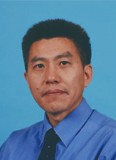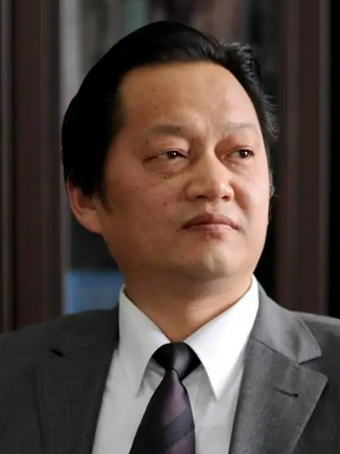
Prof. Zhengtao Ding (IEEE Senior Member)
The University of Manchester, UK

Biograph: Zhengtao Ding received B.Eng. degree from Tsinghua University, Beijing, China, and M.Sc. degree in systems and control, and the Ph.D. degree in control systems from the University of Manchester Institute of Science and Technology, Manchester, U.K. After working in Singapore for ten years, he joined the University of Manchester in 2003, where he holds the title Professor of Control Systems. He is carrying out research on optimal operation of renewable energy systems and other methods of achieving Net Zero with CHDER. He has authored/co-authored three books, including the book Nonlinear and Adaptive Control Systems (IET, 2013) and has published over 300 research articles. His research interests include nonlinear and adaptive control theory and their applications, more recently network-based control, distributed optimization and distributed learning, with applications to power systems and robotics. Prof. Ding serves/has served as the Editor in Chief of Drones and Autonomous Vehicles, Subject Chef Editor of Nonlinear Control for Frontiers, and Associate Editor for Scientific Reports, IEEE Transactions on Automatic Control, IEEE Transactions on Circuit and Systems II, IEEE Control Systems Letters, Transactions of the Institute of Measurement and Control, Control Theory and Technology, Unmanned Systems and several other journals. He is a member of IEEE Technical Committee on Nonlinear Systems and Control, IEEE Technical Committee on Intelligent Control, and IFAC Technical Committee on Adaptive and Learning Systems. He was elected as a fellow of The Alan Turing Institute in 2021, the UK’s national institute for data science and artificial intelligence.
Speech Title: Output Tracking Principle With Exosystems for Control and Optimization of Multi-Agent Systems
Abstract: In this network-connected world, many tasks require coordination and cooperation of subsystems/agents via network connection. Multi-agent systems are good examples of interplay between network communication and control applications. Output regulation is a classic control design method, which aims at tracking an output trajectory while rejecting undesirable disturbances, by exploring internal model design based on exosystem dynamics. This output tracking principle with exosystems has been applied to network connected dynamic systems which leads to several important results. This talk will briefly review the fundamental design principle of output regulation for nonlinear dynamic systems, and then presents some results on output regulation of network connected dynamic systems. Further applications will also be presented for distributed time-varying optimization and resource allocation for energy systems with various constraints.
Prof. Guojian Cheng
Xi'an Shiyou University, China; Xijing University, China

Biography: He has long been engaged in teaching and research in artificial intelligence and machine learning. The main research topics involve the application of artificial intelligence and machine learning in geoscience and petroleum engineering. His research interests include artificial intelligence, machine learning, data science, big data technology, pattern recognition, data mining, image processing, and intelligent reservoir engineering. He has published more than 200 articles in related academic research fields and international conferences, and more than 20 books in the fields of artificial intelligence, big data and machine learning. He is a member of CCF of China Computer Society, a member of Microelectronics Committee of CCF of Shaanxi Province, a director of Computer Education Society of Shaanxi Province, a member of SPE of International Society of Petroleum Engineers; a member of European Geophysical Society; an editorial board member of Journal of Xi'an University of Petroleum (Natural Science Edition); and an assessor of National Natural Science Foundation of China. He has been the leader of the master's program of Software Engineering and Theory in the School of Computer Science of Xi'an Petroleum University, the director of the Institute of Intelligent Digital Oilfield, and was honored with the title of Outstanding Returned Scholar in Shaanxi Province in 2009.
Speech Title: Generative Artificial Intelligence and Its Application in the Energy Industry
Abstract: Under the impact of the new wave of technological revolution and industrial transformation, the digital transformation of the energy industry is becoming a new engine for promoting its high-quality development. By introducing cutting-edge technologies such as cloud computing, the Internet of Things, 5G, big data, and artificial intelligence, energy companies are able to reconstruct business models, enhance operational efficiency, and achieve green and low-carbon development. Artificial intelligence, especially generative AI, is demonstrating tremendous potential in the energy industry, including oil and gas exploration, development, and production, by analyzing and generating new solutions. This lecture will cover the following topics: the history and current state of artificial intelligence, as well as observations of phenomena; what is generative AI (AIGC) and large language models (LLM); the empowerment of industries by AIGC and its application in the oil and gas industry; the arrival of the AIGC era and safety precautions; and the technical pathways and reference architectures of industrial large models.
Prof. Akash Saxena (IEEE Senior Member)
School of Engg. & Technology Central University of Haryana, Mahendergarh, India

Biography: Dr. Akash received the Bachelor of Technology in Engineering with honors in Electrical Engineering from the Department of Electrical Engineering, Engineering College Kota, Kota Rajasthan, India in 2001,Master of Technology with honors in Power System Engineering from the Department of Electrical Engineering, Malaviya National Institute of Technology, Jaipur, India in 2008 and Ph.D. degree in Power System Dynamics from the Malaviya National Institute of Technology, India in 2015. Dr. Akash has presented research work at national/international conferences in India and abroad. His work has been published in leading journals in the form of short communication/letters /articles/research papers. He is associated with many professional organizations as an editor, reviewer and adviser. His research interests are the Computational Intelligence, Application of Artificial Intelligence in the power system, Control theory, smart grid, signal processing and Metaheuristics.
Speech Title: Forecasting Market Clearing Price in Energy Market Using Advanced Grey Wolf Optimization
Prof. Zeashan Hameed Khan (IEEE Senior Member)
IRC-IMR, King Fahd University of Petroleum and Minerals, Saudi Arabia

Biography: Zeashan Hameed Khan is currently working as a Senior researcher at IRC-IMR, King Fahd University of Petroleum and Minerals, Saudi Arabia. He obtained his MS and PhD in Automation and Computer Integrated manufacturing from University of Grenoble in 2007 and 2010 respectively. He is a leading expert in robotics, AI, and advanced manufacturing systems, with a strong focus on the diagnosis and fault tolerant control, AI-driven decision making, and additive manufacturing. Dr Khan’s work continuously bridges academic knowledge with practical applications in smart manufacturing and autonomous systems. He has authored more than 70 journal and conference papers. He is serving as an editorial member in several leading journals. He is a Senior member of IEEE.
Speech Title: Robots in Oil & Gas Industry: Technological Challenges in Design and Implementation
Abstract: The oil and gas industry, facing unique operational challenges and hazardous environments, is increasingly turning to robotics and automation to enhance safety, efficiency, and productivity. This talk delves into the critical role of robotics in transforming upstream, midstream, and downstream operations. It addresses the complex requirements for designing robots capable of functioning in extreme conditions, such as high temperatures, pressures, corrosive substances, and remote locations. We will explore how recent advances in robotics and AI are driving innovation, from inspection and maintenance robots for pipelines and offshore rigs to autonomous drilling and robotic process automation in refining. The talk also examines the technological challenges involved, including robust sensor integration, energy autonomy, mobility in confined spaces, and real-time data communication in challenging environments. Furthermore, issues surrounding data security, regulatory compliance, and workforce integration will be discussed, emphasizing the importance of a multi-disciplinary approach in robotic system development. Real-world case studies and insights from pilot projects will provide practical perspectives on how companies are overcoming these challenges. This session will highlight future directions and collaborative research opportunities, aiming to inspire continued advancements in robotics tailored to the oil and gas sector.